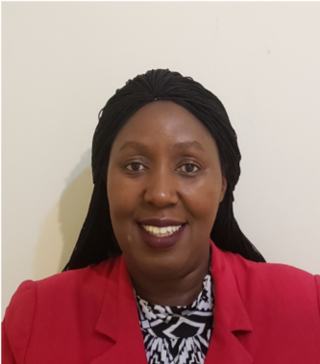Health
Reducing and Responding to Intimate Partner Violence
Part two of this interview addresses intimate partner violence interventions.
Posted March 20, 2021 Reviewed by Devon Frye
Although responding to and caring for victims of intimate partner violence is crucial, it is also important to implement long-term interventions to reduce the causes. In Part Two of this interview, Phiona Koyiet shares how to take the findings of her research further to help address the prevalence of intimate partner violence and the stigma surrounding it.

Phiona Koyiet is the Senior Technical Advisor Mental Health and Psychosocial Support (MHPSS), at World Vision International. Phiona holds a Bachelor of Arts degree with a double major in Psychology and Community Development from Daystar University Nairobi, a Masters of Arts in Gender and Development from the University of Nairobi, and an ongoing Master of Science in Psychology and Neuroscience of Mental Health, Kings College London.
She is a mental health and gender expert with over 15 years of experience. Phiona provides technical leadership for Mental Health and Psychosocial Support programs in fragile and crisis contexts. This includes leading organizational MHPSS strategies and approaches; technical research, supporting programs and interventions to be consistent with international MHPSS standards and guidelines.
This is part two of a two-part interview with Ms. Phiona Koyiet; you can find Part 1 here.
Jamie Aten: Is there anything that surprised you in your findings or that you were not fully expecting?
Phiona Koyiet: The surprising theme in the study was that so many men appeared to suffer from mental health problems in silence, without seeking or accessing any help. Not surprisingly, this worsened mental health situations, and men who did not seek help were prone to adopt more negative coping strategies, including alcohol and substance abuse.
Nonetheless, the perspective we got from this research was different in that men indicated [that] targeted psychosocial and mental health services (those that were specific to men) helped them manage their problems in productive ways, if the services were offered through or in collaboration with their local support systems. Sadly, such services are rarely available, and men are mostly left out of so many interventions and services that often focus more on women, especially when it relates to intimate partner violence.
Services are often, and rightly, focused on protecting and supporting victims of intimate partner violence, but they rarely address root causes among the men usually perpetrating such violence. Men in a country such as Kenya, for example, are constrained by long-held cultural beliefs that they are supposed to be strong and handle things in a "manly" manner, without complaining or crying. From this work, I learned that we also need to address the negative cultural barriers and help men to understand it is normal to not be OK and essential to seek help.
JA: How might readers apply what you found to their lives?
PK: In supporting work to reduce and respond to intimate partner violence, there is a need to consider addressing the mental health needs of men using holistic approaches, including empowerment—enhancing men’s well-being and self-determination, mindset shifts, and facilitating a process of recovery.
Evidence is rapidly building to show that mental health challenges, alcohol and substance abuse, and intimate partner violence are in many instances, inextricably linked. Individuals can use existing community and social network structures to support men suffering from mental health problems. Equipping men with important positive mental health and coping skills can help manage many common mental health crises and stressors. Long-term, this may be able to reduce some instances of intimate partner violence.
Another finding from this study worth applying is the use of group interventions to address men's challenges. Men value their social spaces. Further, interventions targeting this group need to consider holistic interventions, with empowerment being a crucial part.
JA: What are you currently working on that you might like to share?
PK: Following this successful feasibility study that showed Men’s Group Problem Management Plus (GPM+) in reducing psychological distress, functioning impairment, alcohol and substance use, and violence against or from women, we are now seeking to undertake a larger randomized control trial. This means more research to really explore the links we observed in our short study and to more accurately map the pathways or direction of the linkages.
Going forward, I also plan to work on testing novel mental health interventions to address the prevalent mental health challenges among vulnerable and displaced populations, including refugees, in the time of COVID-19.
References
Ackerman, S., Gleason, N., & Gonzales, R. (2015). Using rapid ethnography to support the design and implementation of health information technologies. Stud Health Technol Inform, 215, 14-27.
Saleem, J. J., Plew, W. R., Speir, R. C., Herout, J., Wilck, N. R., Ryan, D. M., . . . Phillips, T. (2015). Understanding barriers and facilitators to the use of Clinical Information Systems for intensive care units and Anesthesia Record Keeping: A rapid ethnography. International journal of medical informatics, 84(7), 500-511.
Schafer, A., and P. Koyiet. "Exploring links between common mental health problems, alcohol/substance use and perpetration of intimate partner violence: a rapid ethnographic assessment with men in urban Kenya." Global Mental Health 5 (2018).
WHO. (2012). Assessing mental health and psychosocial needs and resources: Toolkit for humanitarian settings: World Health Organization.
World Health Organization. (2016). Problem management plus (PM+): psychological help for adults in communities exposed to adversity: WHO Kenyan field-trial version 1.0, 2016 (No. WHO/MSD/MER/16.1). World Health Organization.




